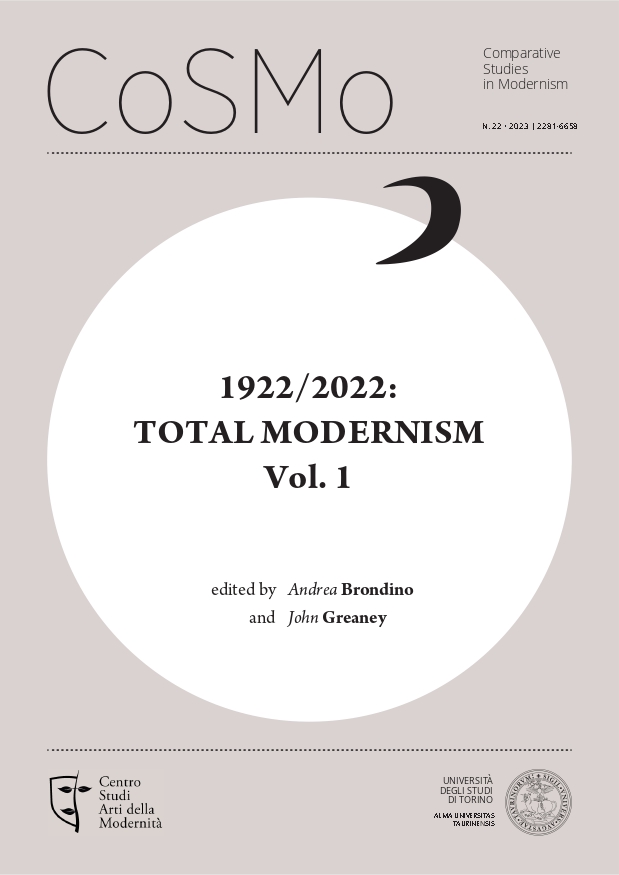Total Timescaping
The Modernist Moment in Pynchon’s “Against the Day”
DOI:
https://doi.org/10.13135/2281-6658/7806Parole chiave:
Thomas Pynchon, Modernism, Postmodernism, Modernity, Against the Day, TimeAbstract
In his novel Against the Day, Pynchon’s formulation of modernism anticipates and even subsumes postmodernism, yet also is predicated on an abolition of sequential time and cause and effect, which might reflect a modernist decentering of space, time, and gravity. Pynchon’s modernism dramatizes the idea that linear time no longer exists – that our time and space are no longer the center of the universe, much as conscious individual thought no longer is the center of subjectivity. Periods, literary or grammatical, also fall by the wayside. This decentering of time also is associated with modernist science and ontology, which paradoxically put modernism back at the center of an aesthetic without a center. Modernism functions as the narrative equivalent of relativity, yet also of quantum theory, because all spaces and time emerge and exist at once, in a process that Pynchon refers to as bilocation. Modernist connection then veers into concurrence. At least heuristically, Pynchon also treats the modernist project as a form of doubling and repetition. As a result, Pynchon situates modernism and World War I as precursors to their successor, postmodernism and World War II, without directly addressing them, yet somehow also as co-existing with them; both are doubled though repetitions that rewrite the originals. Pynchon situates modernism as an ethos of echoes, but a repetition without an original. A kind of quilting point, modernism becomes a contradictory master term that still explains everything, a lens through which all else is seen.
Downloads
##submission.downloads##
Pubblicato
Fascicolo
Sezione
Licenza
Gli autori mantengono i diritti sulla loro opera e cedono alla rivista il diritto di prima pubblicazione dell'opera, contemporaneamente licenziata sotto una Licenza Creative Commons - Attribuzione che permette ad altri di condividere l'opera indicando la paternità intellettuale e la prima pubblicazione su questa rivista.







